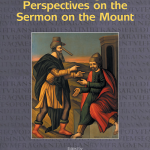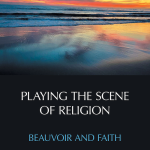“Cultural Trauma and the Hebrew Bible” – Topical Issue of Open Theology
CALL FOR PAPERS
for a topical issue of Open Theology
CULTURAL TRAUMA AND THE HEBREW BIBLE
Open Theology (https://www.degruyter.com/OPTH) invites submissions for the topical issue “Cultural Trauma and the Hebrew Bible,” edited by Danilo Verde (KU Leuven) and Dominik Markl (Pontifical Biblical Institute, Rome).
In his work titled Trauma: A Social Theory, American sociologist Jeffrey C. Alexander argues: “Cultural trauma occurs when members of a collectivity feel they have been subjected to a horrendous event that leaves indelible marks upon their group consciousness, marking their memories forever and changing their future identity in fundamental and irrevocable ways” (p. 19). From this perspective, the mere occurrence of historical catastrophes or collective traumas does not necessarily result in cultural trauma, since cultural trauma only emerges when a collective catastrophe indelibly shapes a group’s collective memory and produces a profound revision of that group’s collective identity. Cultural trauma studies by no means constitute a single, monolithic research paradigm; yet, scholars in this field largely agree that cultural traumas “are for the most part historically made, not born” (Neil J. Smelser, Psychological Trauma and Cultural Trauma, 37), in the sense that they are the result of complex social processes.
Assuming the perspective of cultural trauma studies in Hebrew Bible/Old Testament scholarship involves understanding how texts and traditions that eventually formed the HB/OT both represented and shaped ancient Israel’s collective identity as profoundly disrupted and in need of recreation. The HB/OT frequently refers to collective experiences of disasters and crises. We accept papers that investigate the interrelationship between biblical representations of collective suffering and the creation of collective identity in ancient Israel and early Judaism in light of cultural trauma theory. Authors will explore biblical texts such as collective laments, curses, narratives, etc. not only as texts representing and voicing the community’s experience of catastrophic events, but also as tools to shape cultural trauma in ancient Israel and early Judaism. Authors are also encouraged to explore relevant texts as “equipment for living” (see Kenneth Burke, Literature as Equipment for Living, 593-598) for the addressed community, namely as the literary and religious heritage through which the carrier groups of biblical texts attempted to build social resilience by coping with and giving meaning to collective suffering. Among others, topics or areas of focus might include:
-Representations of collective trauma in the HB/OT: Poetic texts
-Biblical strategies for the shaping of cultural traumas
-Biblical strategies for the shaping of social resilience
-Cultural trauma in the HB/OT and in ancient near Eastern literature: Patterns and motifs
-Carrier groups of cultural traumas and their agendas in ancient Israel and early Judaism
-Cultural trauma hermeneutics and historical critical approaches
-The use of the Bible in shaping cultural trauma in the history of Judaism and Christianity
Authors publishing their articles in the topical issue will benefit from:
– Transparent, comprehensive, and efficient peer review.
– Free language assistance for authors from non-English speaking regions.
Because Open Theology is published in Open Access, as a rule, publication costs should be covered by so called Article Publishing Charges (APC), paid by authors, their affiliated institutions, funders or sponsors.
Authors without access to publishing funds are encouraged to discuss potential discounts or waivers with Managing Editor of the journal Katarzyna Tempczyk (katarzyna.tempczyk@degruyter.com) before submitting their manuscripts.
HOW TO SUBMIT
Submissions will be collected by March 31, 2022, via the on-line submission system at http://www.editorialmanager.com/openth/
Choose as article type: Cultural Trauma and the Hebrew Bible
Before submission the authors should carefully read over the Instruction for Authors, available at: https://www.degruyter.com/publication/journal_key/OPTH/downloadAsset/OPTH_Instruction%20for%20Authors.pdf
All contributions will undergo critical peer-review before being accepted for publication.
Further questions about this thematic issue can be addressed to Danilo Verde at danilo.verde@kuleuven.be. In case of technical or financial questions, please contact Managing Editor of the journal Katarzyna Tempczyk at katarzyna.tempczyk@degruyter.com



